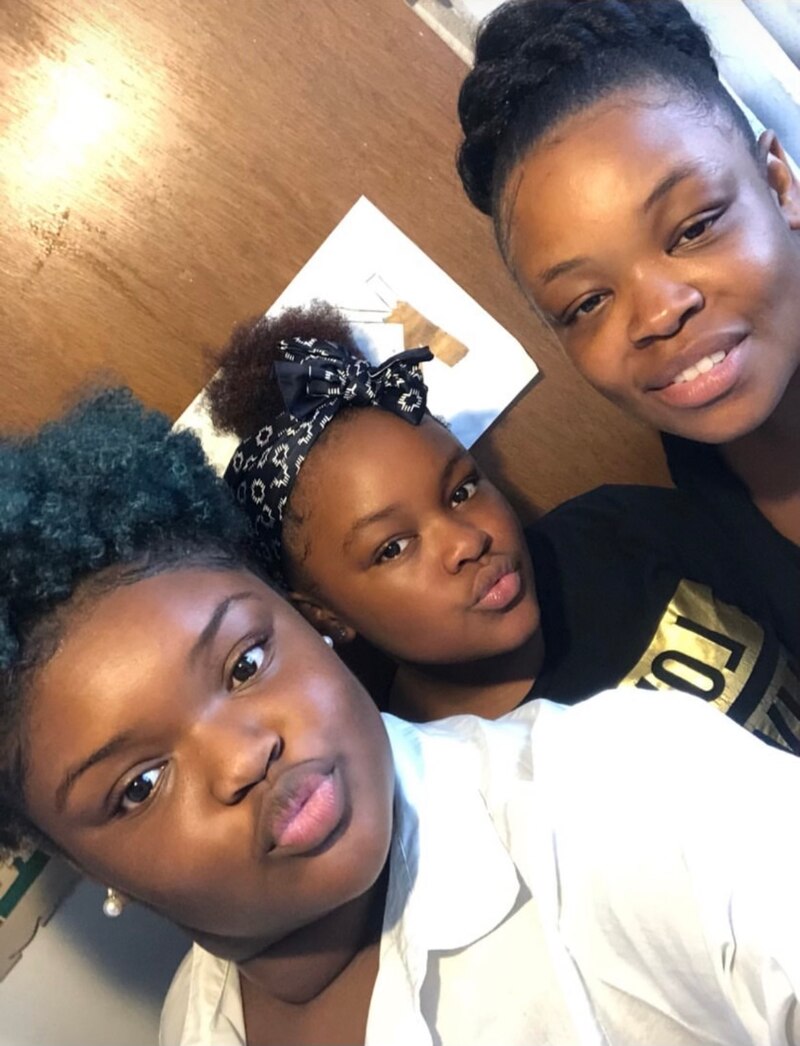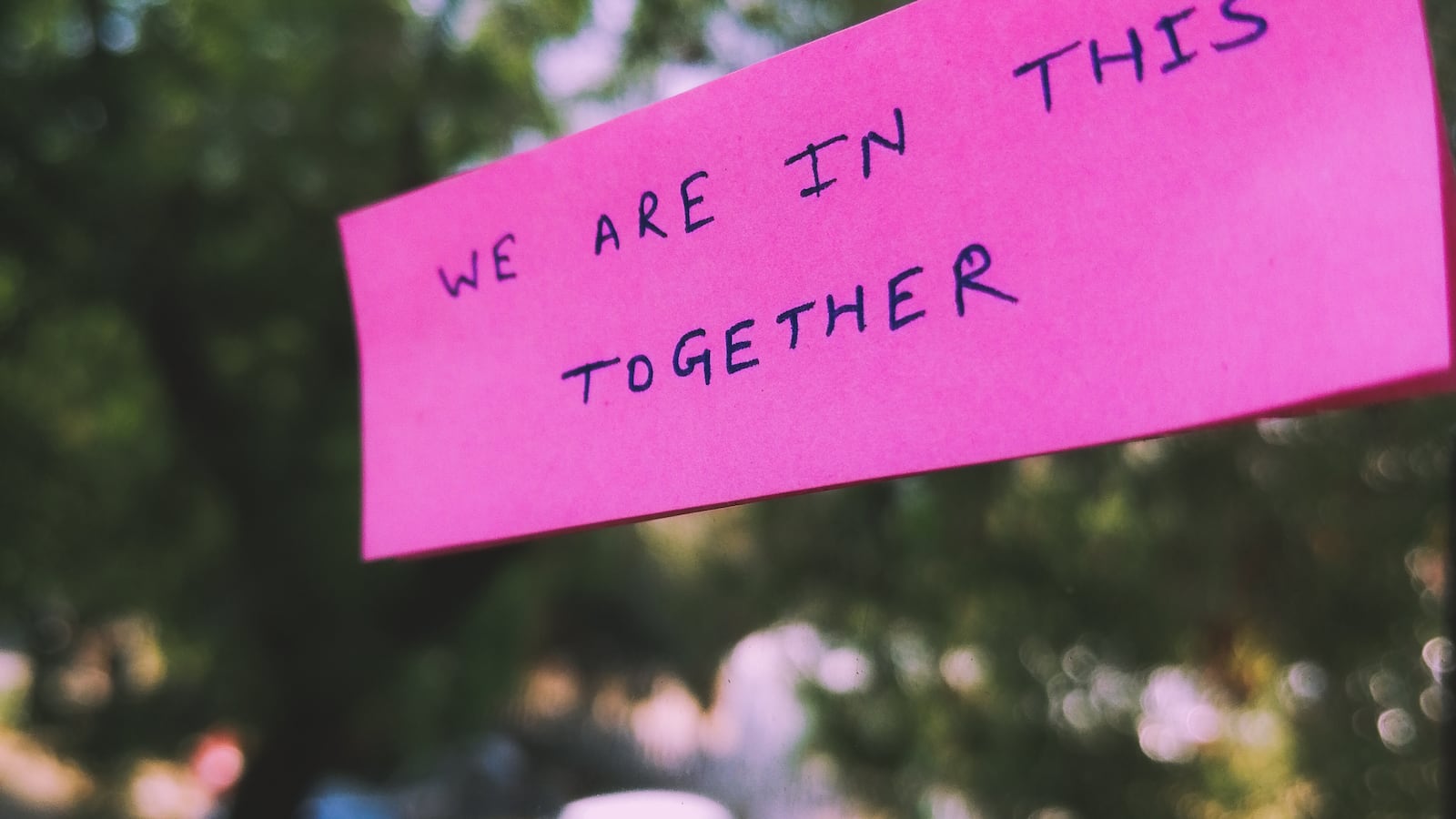The afternoon wind blew through the classroom windows, causing the pages of “The Epic of Gilgamesh” to shift. I sat there silently. The words of my teacher Dr. Russell blurred into the background as thoughts of my mother consumed me. Did she know I loved her? Did she understand why I didn’t go with her? Does she forgive me?
From the time I was little, I was always praised for my academic abilities. But now, in the wake of this colossal loss — my mother’s unexpected death when I was just 14 — I was simply another gifted student who had fallen off her path. In reality, I was carrying a burden far heavier than the weight of any school assignment: grief.

When my mom died, I was already navigating the tumultuous waters of adolescence and homelessness. Now, I was grappling with the loss of both of my biological parents — my mother’s death being more recent and devastating.
When I started my freshman year of high school, I had looked to the future with hope, envisioning all the moments I would share with my loved ones. Moments like my 16th birthday, my senior prom, and my high school graduation. I never would have imagined that within a few months, I would bury my mom and my whole world would fall apart.
As with any mother and daughter, my relationship with my mother, Michelle, had its ups and downs. But no matter what, she was always there, loving her daughters hard and caring for us. She was an independent Black entrepreneur, a person who would give you the clothes off of her back if you needed them, and someone who allowed her children to dream big. At 38, my mom, with her beautiful smile, was called home.
As I sat in English class on that windy afternoon, I had so many questions. Why me? Why did I have to lose both parents while my classmates’ parents were alive and well? My peers seemed so carefree, while I struggled to keep myself afloat.
I felt alone, but I wasn’t alone. An estimated 1 in 12 U.S. children will lose a parent or sibling by the age of 18, according to the Childhood Bereavement Estimation Model. And grieving children are more likely to struggle in school, and experience symptoms of depression, anxiety, and social withdrawal.
In my case, my grief manifested as a decline in my academic performance. As I mourned the loss of my mom, it was hard to get up in the morning and make it through the day. I recall feeling like an astronaut floating in space without a tether.
Still, glimpses of light came from people who recognized my pain. The school social worker provided a listening ear and set me up with the text therapy resource; some teachers offered me extra time on tests and assignments.
The saying “it takes a village” really comes into play here. My family supported me. Whether it was a road trip to South Carolina with my Aunty Mo to take a break from the world or the Friday nail dates with my sister, these moments offered respite from the suffocating weight of my grief.

Two years later, my grief journey is still not over. It will never be over, but I have gleaned some important lessons from it. Lessons like never giving up, letting your choices in life be for you, and giving yourself grace. Perhaps the most meaningful lesson is how important empathy and compassion is within the school community.
On too many occasions grieving students are met with indifference or misguided attempts to “inspire” them to persevere in the name of their lost loved one. Educators insinuate that the student is somehow disappointing the deceased if they take the time to process their grief. On countless occasions, I had people say unhelpful things like, “Be who they would want you to be” or “Do it for them.” But when your mental health isn’t good, you most likely won’t perform as well academically.
This is not an essay about personal loss. It’s a call to action for educators and schools to recognize the impact of home life on student performance and make changes.
New Jersey will soon become the first state to require school districts to teach students about symptoms of and coping methods for grief, as well as to provide in-school grief resources, such as mental health crisis support and therapy. But it’s not enough.
Educators need to know what grief looks like in children and teens. Schools need to realize that grief is not an obstacle to overcome but a lifelong journey to explore with care and generosity of spirit. Teachers should offer accommodations to bereaved students who need them, and campuses should have safe spaces where grieving kids can be heard and feel understood. That could be school counseling sessions or just a quiet room for when the world gets a little too loud.
Allow us, those who have experienced profound loss, to bridge the space between grief and education. Allow us to help create a community where every student feels supported, valued, and equipped for success. We, humans, need to learn to take breaks, to stop and feel what we need to feel. Only then can healing begin, and only then can students truly thrive both inside and outside the classroom.
Alexa Brown-Hill, a junior at Bard High School Early College in Newark, is a multifaceted individual who is deeply passionate about literature and aspires to become a published author and a makeup artist. She is a 2023-24 Chalkbeat Student Voices fellow.


